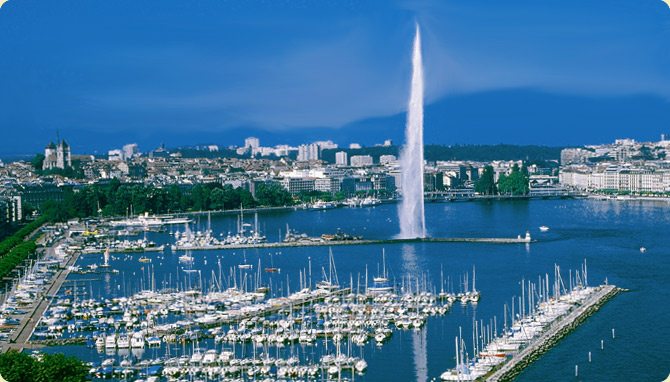Guide for moving to Switzerland
by TM Maria Be a king in your own kingdomThe elegant cities and the spectacular landscapes of Switzerland are famous all over the world and make the many expatriates who decide to settle their dream. Add to that historic neutrality, an environmentally friendly society, an extremely low crime rate, and economic and political stability. You will understand why Switzerland regularly ranks at the top of the list of the happiest countries in the world.
However, reading this article you can get enough idea for moving to the best city of Switzerland, like Zurich, Geneva, Lausanne, Lucerne, Winterthur etc. Here you can get more idea for Déménagement Genève.

To settle in Switzerland
Although Switzerland is not part of the European Union, it respects the agreements of the Schengen area and French citizens do not need any visa to go to Switzerland. All you need is a valid ID (passport or ID card). On the other hand, if you plan to settle in Switzerland, you will have to make representations to the cantonal authorities to obtain a residence permit. There are several types of authorizations for EU nationals: authorization of establishment, residence permit, residence permit with lucrative activity and border authorization. The residence permit must be renewed regularly, even permanently. Note that anyone who has been in Switzerland for at least 12 years can apply for naturalization.
Paperwork
In addition to the residence permit mentioned above, it is also mandatory to report to the municipality within eight days of your arrival and before your first day of work. Note that the owner of your home (or agency if any) is obliged to declare tenants with a residence permit.
What to do when arriving?
The reputation of Swiss banks is well known and it is extremely easy to open a bank account, even remotely. You will usually be asked for an identity document and proof of recent domicile. Some banks require a minimum balance permanently, and it is advisable to inquire about the penalties.
Cost of life
Swiss wages may seem very high, but the cost of living requires it. Indeed, it is one of the highest in Europe. However, there are differences between the cantons. The canton of Uri is for example the cheapest, and that of Geneva the most expensive. On the city side, it is Zurich that wins the list of the most expensive cities followed by Geneva, Lausanne, Lucerne and Winterthur. The cheapest cities are Chaux-de-Fonds, Schaffhausen, Biel, St. Gallen and Freiburg.
The job market
If Switzerland is so attractive to expatriates, it is largely due to the dynamism of its labor market, which has one of the lowest unemployment rates in Europe, and one of the lowest in the world. who is envious of neighboring countries.
Despite the announcement of the Swiss National Bank in 2015 to no longer support the Euro-Swiss franc exchange rate, the job market continues to be stable and companies are hiring. 11% of companies plan to increase their workforce, and a national growth of 4% of the employment forecast is estimated. The sectors on the rise are construction, public and social services and hotels. The declining sectors are agriculture and commerce. The banking, energy, finance, real estate and transportation sectors are relatively stable. The most attractive regions in terms of employment are Central Switzerland, the Mittelland area, North West Switzerland, Eastern Switzerland, Geneva and the Zurich region for the banking sector.
Health care access
Expatriates in Switzerland must be affiliated to a Swiss health insurance fund no later than three months after their arrival, or after having started a professional activity. Unlike France, there is no "social security" per se and basic health insurance is compulsory (LAMal). This insurance covers the costs of health, prevention, maternity and accidents. A deductible is established and health costs are only covered from a minimum of 300 Swiss francs per year (about 270€), depending on the deductible chosen.
Driving in Switzerland
French nationals can drive in Switzerland for up to 12 months with their French driving license. Then you will have to exchange your French driving license for a Swiss license. The procedure to follow and the documents to provide differ according to the canton, and you can contact the Service of the Automobiles and Navigation which corresponds to you.
Sponsor Ads
Created on Dec 15th 2018 03:10. Viewed 1,795 times.



